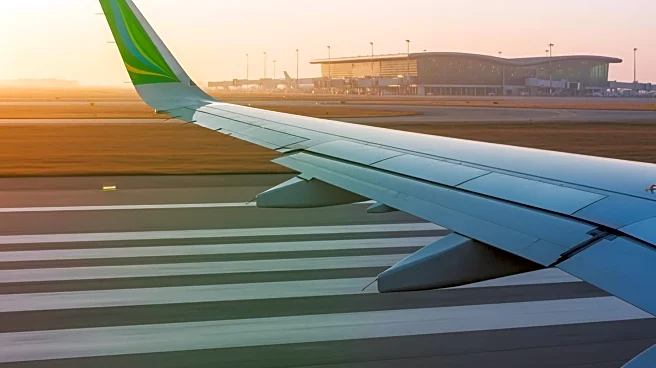What's Happening?
FedEx has initiated the use of sustainable aviation fuel (SAF) at Chicago O'Hare International Airport and Miami International Airport, marking a significant step in its efforts to incorporate cleaner fuel options into its operations. This move represents the first instance of a cargo airline utilizing SAF at O'Hare. FedEx plans to expand the use of SAF across more gateways as supply becomes more available. The company aims to achieve 30% usage of alternative fuels by 2030, driven by increasing customer demand for lower-carbon shipping solutions, particularly from large retailers and manufacturers.
Why It's Important?
The introduction of SAF by FedEx is a pivotal development in the logistics industry, as air cargo plays a crucial role in sectors requiring fast and
reliable delivery, such as healthcare, electronics, and e-commerce. Although SAF is more expensive and its supply is limited, its adoption is essential for logistics companies aiming to meet long-term emissions goals. This shift could influence cost structures, availability, and strategic planning within the industry, as companies strive to balance environmental responsibilities with operational efficiency.
What's Next?
FedEx's commitment to expanding SAF usage is likely to prompt other logistics companies to consider similar initiatives, potentially leading to broader industry adoption of sustainable fuels. As supply increases, FedEx may extend SAF usage to additional airports, further integrating cleaner fuel options into its network. This could also lead to collaborations with fuel suppliers to enhance availability and reduce costs, aligning with FedEx's environmental objectives.














